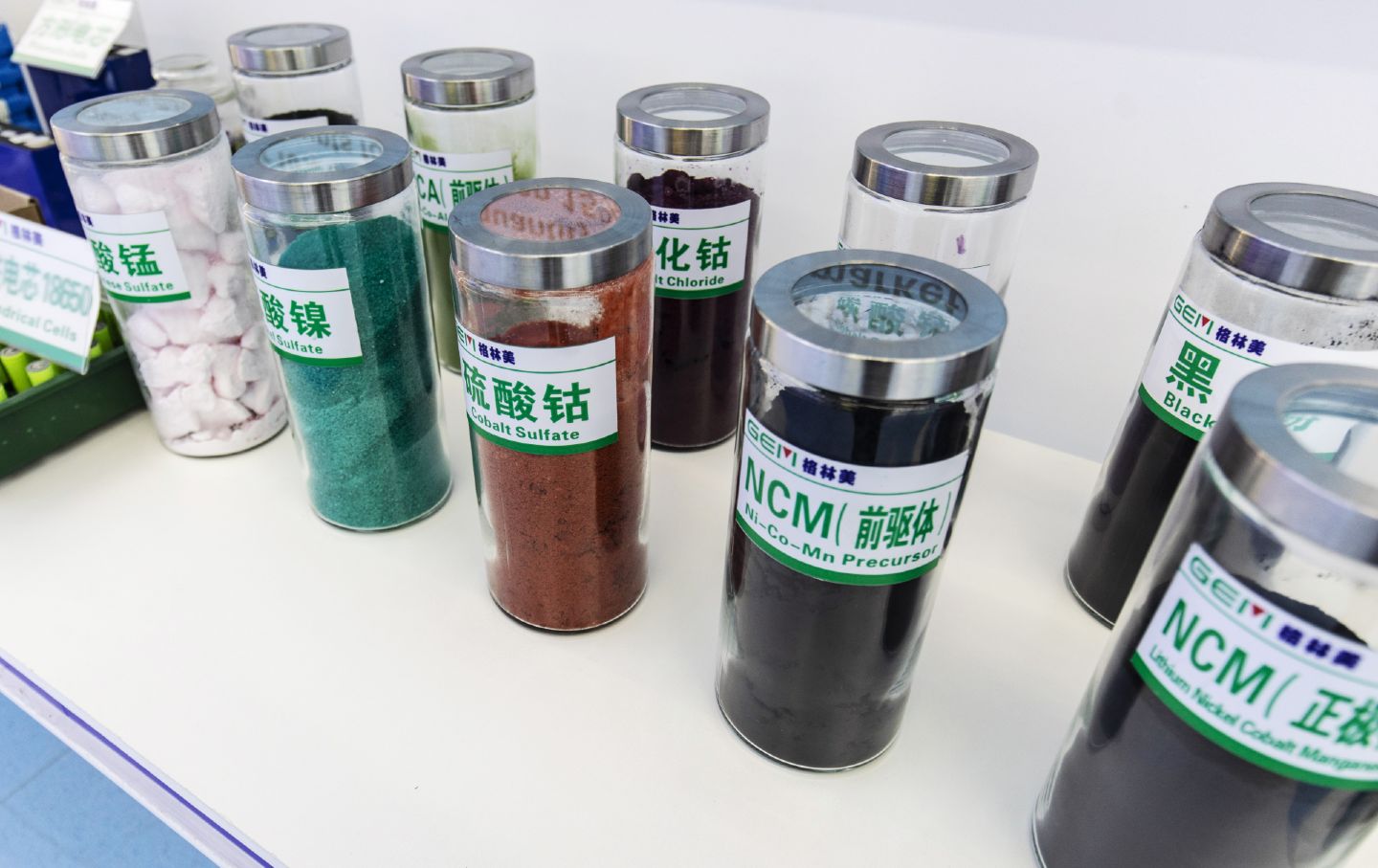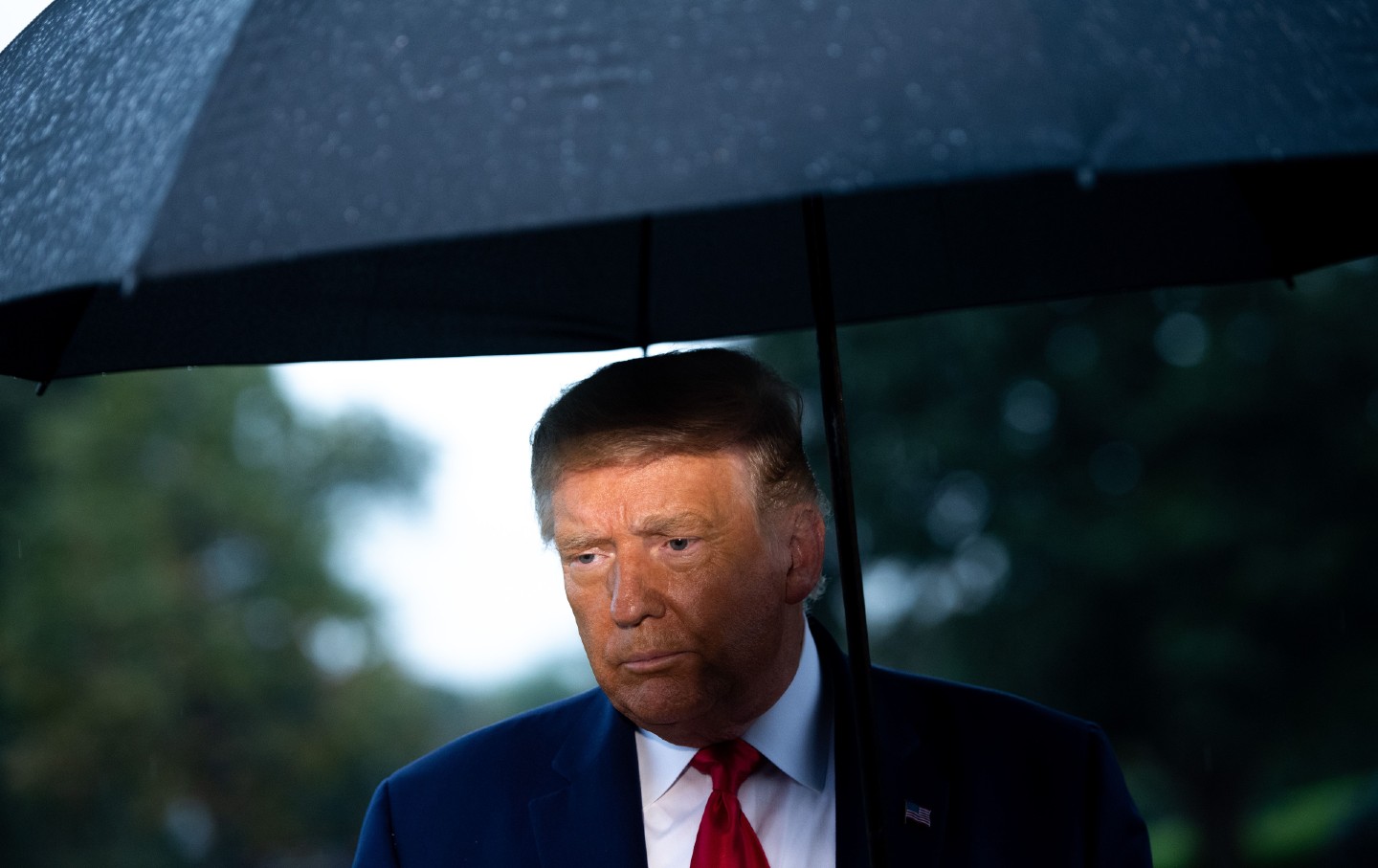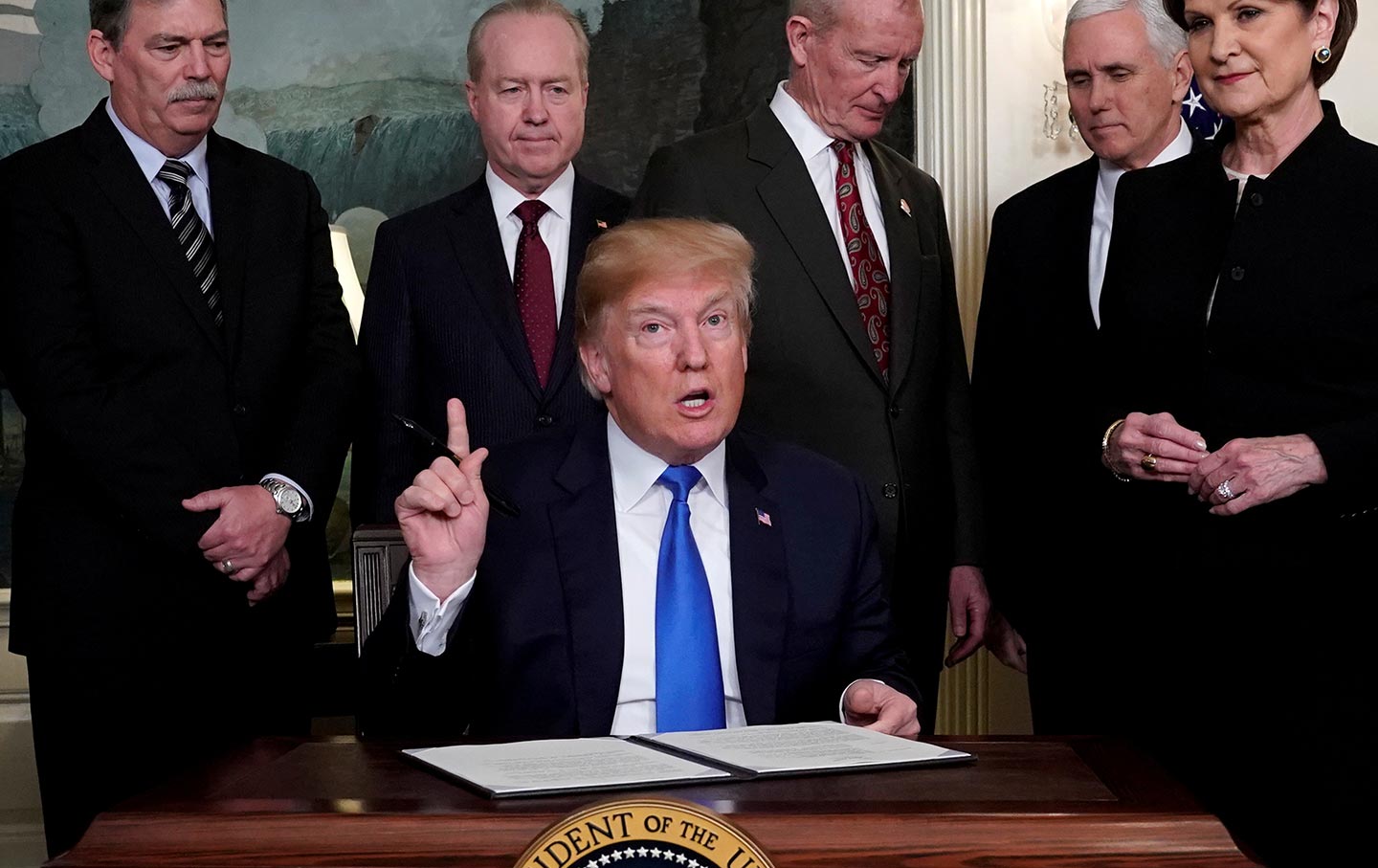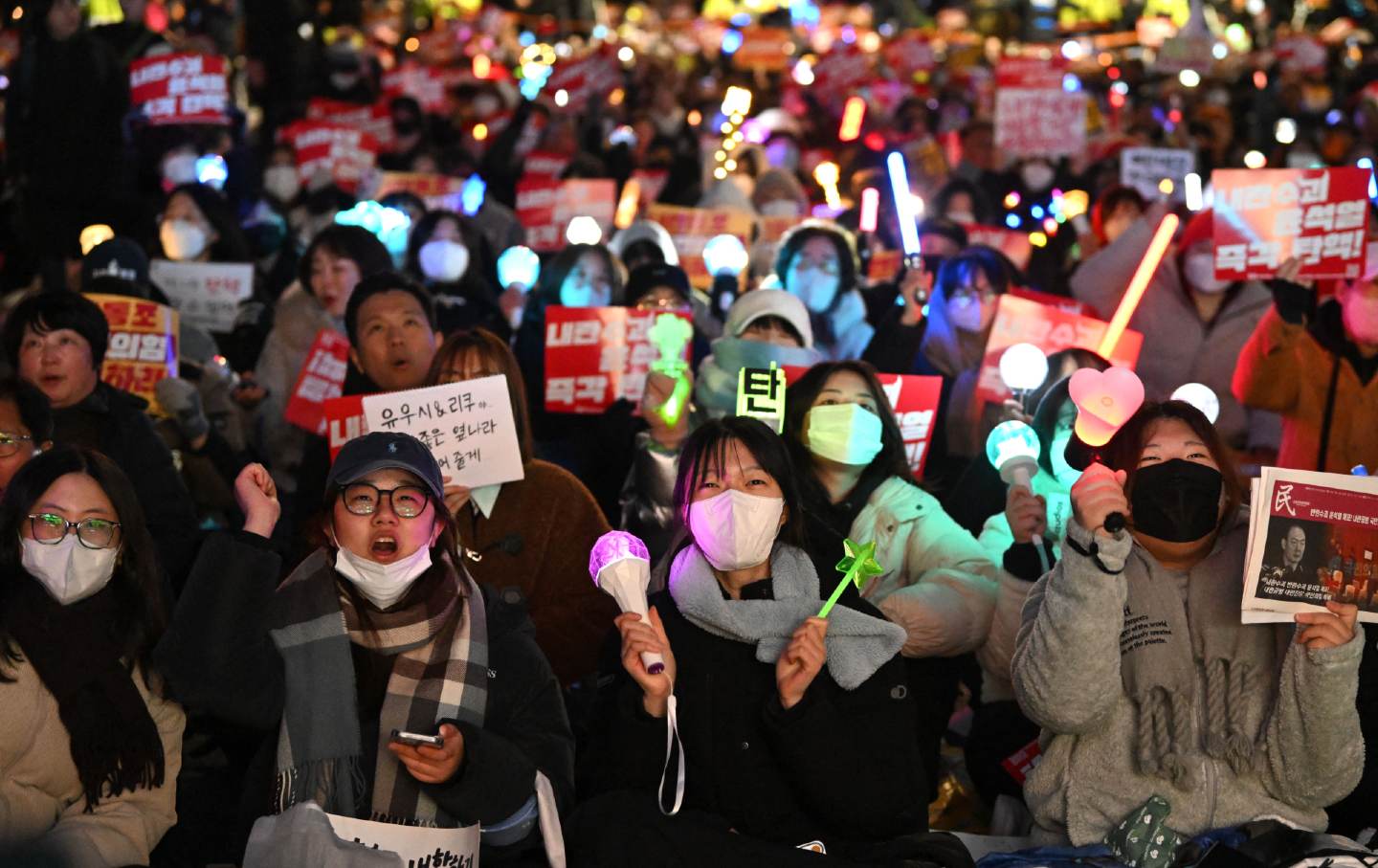January 2, 2025
China’s latest export curbs reveal the complex geopolitics behind President Trump’s proposed tariffs and green energy transition.

Earlier in December of this year, the Chinese government announced curbs on exports of several key industrial minerals, as well as some types of graphite. The move comes amid increased pressure on China from Washington and in anticipation of tough tariffs that Donald Trump has promised to impose when he returns to the presidency next year.
Representatives of the Chinese government argued that curbing the export of these minerals is consistent with their government’s anti-proliferation efforts. They said the materials were “dual-purpose” and that they could be used in the manufacture of weapons. Officials in the United States have historically also argued the same for certain minerals, such as graphite, which the US placed under strict export controls in 2006.
Among the minerals there are antimony (used in night vision goggles and bullets), gallium (High-precision weapons and radar systems), and Germanium (powerful sensors mounted on tanks, ships and helicopters). Super-hard metals such as tungsten can also be included in the restrictions, as can graphite, a type of carbon familiar from its use in pencils. Individual species graphite are used in gun barrels and others are dispersed on the battlefield in the form of smoke that confuses electromagnetic wave detection devices.
Most of these materials also find significant civilian uses. For example, graphite is used in the anodes or negative electrodes of virtually all lithium-ion batteries. (If you’re reading this article on a battery-powered device, you’re probably using graphite in some form.) Export controls mean that non-Chinese companies using the material in products destined for the United States must apply for export license. Such licenses will be decided by Chinese officials.
China controls the vast majority of the processing of some of these materials, a fact that only became widely registered in Washington as tensions with China began to rise during the previous Trump administration. China, for example produces 61 percent of natural graphite and 98 percent of final processed graphite in the world. Graphite is also a key material in the transition to green energy and electric vehicles: last year, about 50 percent of the world’s natural graphite went into electric vehicles.
In recent years, Beijing has managed to expand its control over the supply chain. Efforts have been made—primarily through Joe Biden’s Cut Inflation Act—to create a supply chain for essential minerals that is independent of China, and to develop new technologies which reduces the need for hard-to-find materials. But progress is slow. “China will continue to be a dominant player,” said Tony Alderson, senior anode and cathode analyst at Benchmark Mineral Intelligence, a specialist provider of supply chain and energy transition information. “I think the investment they’re making is huge, and it’s more than the U.S. in terms of the anode supply chain.” Despite calls for progress from politicians in Europe and the US, he said 2024 was “a year of delays” and a widening gap between supply and demand for key minerals everywhere except China.
By banning the export of these minerals, the Chinese government is showing that it has leverage over important parts of the electronics supply chain. “We see it in the industry as a shot across the bow,” Michael R. told me. Hollamon II, chief commercial officer of US Strategic Metals, a mining and processing firm specializing in environmentally transition materials. He noted that the Chinese have imposed similar bans on important minerals in the past, including a ban last year on certain gallium and germanium products. “The Chinese government has put its money where its mouth is.”
Markets reacted to news of the latest decline: the price of antimony increased by 40 percent on news of China’s latest export restrictions. It was something like that is worried Gary Evans, CEO of US Antimony Corporation, the only domestic antimony processor. Speaking on Fox Business, Evans worried that high prices would drive businesses out of business.
Hollamon said the Biden administration often talked about creating a supply chain independent of China, but promised projects often failed to materialize and funding was delayed at critical stages. On the other hand, China has been able to fund projects and reduce the costs of Chinese firms through massive public capital infusions into the mining, processing and industrial use of important metals and transition technologies. “We played with our hands tied behind our backs – that’s how the West has operated for the past 15 years,” he said.
But there is a more fundamental question. The United States has traditionally restricted technology transfers to China due to copyright concerns: this year, President Biden introduced a 100 percent tariff on Chinese electric cars. US Govt newly prepared constraints on the import of artificial intelligence technologies to China (Beijing answered with an antitrust investigation into U.S. chip giant Nvidia), and Washington has talked about “uncoupling” with China for the past few years. In 2022, the US Department of Defense even released A 74-page report on the “security” of supplies chain for materials used in military equipment. Chinese graphite is already subject to a 25 percent tariff in the US. (Last Wednesday, the North American Active Anode Materials Manufacturers Trade Association said such a tariff was “too low” and – asked the US government levy a 920 percent tariff on Chinese graphite imports, a move that would double the cost electric car in the States.) Why would China help the United States build a supply chain that undermines its own interests and erodes market share for Chinese companies?
In metals and renewables, there is growing concern about the use of tariffs in a part of the global economy where China has become king. “me” Trump said“the most beautiful word in the dictionary is “tariff”. He even suggested that he would introduce tariffs. up to 60 percent on Chinese goods. But while Washington appears to see tariffs as a one-way street, China’s latest show of strength shows Beijing has considerable leverage, especially when it comes to materials used in electrical devices and vehicles.
Ultimately, the costs of the tariffs are usually passed on to the consumer. Trump, who used fears of inflation to energize his base during the last election, will be wary of policies that cause too much price movement. After all, antimony isn’t just in bullets; it is used as a fire retardant in roofing in the US.
popular
“Swipe to the bottom left to see more authors”Swipe →
Perhaps rising prices will mean the next administration will be more inclined to strike a deal with Chinese Premier Xi Jinping, an autocratic leader Trump is reportedly enthused. Elon Musk’s ties to China – about half of Tesla’s are made there and the country is said to the second largest market in the world for electric vehicles – this can also complicate the situation. But this will not solve the pressing problem of China’s dominance in the supply chain of critical raw materials.
Industry players like Hollamon believe the new administration has a chance to boost domestic mining and processing through grants and streamlining regulations and creating national strategic mineral reserves, many of which were sold off after the Cold War. But the outlook is also worrisome: Tariff hikes have historically led to reductions and stockpiles that have tended to be ingredients of conflict. Even if such fears remain remote for now, China, whose materials processing and battery industries are two bright spots in an otherwise bleak economic landscape, is unlikely to relinquish its preeminence in these spaces anytime soon.
More from Nation

While the war on terror has receded into the background of our lives, its premise and tactics remain all too accessible.

People from Trump’s entourage, who are responsible for developing foreign policy, consider China Great.




